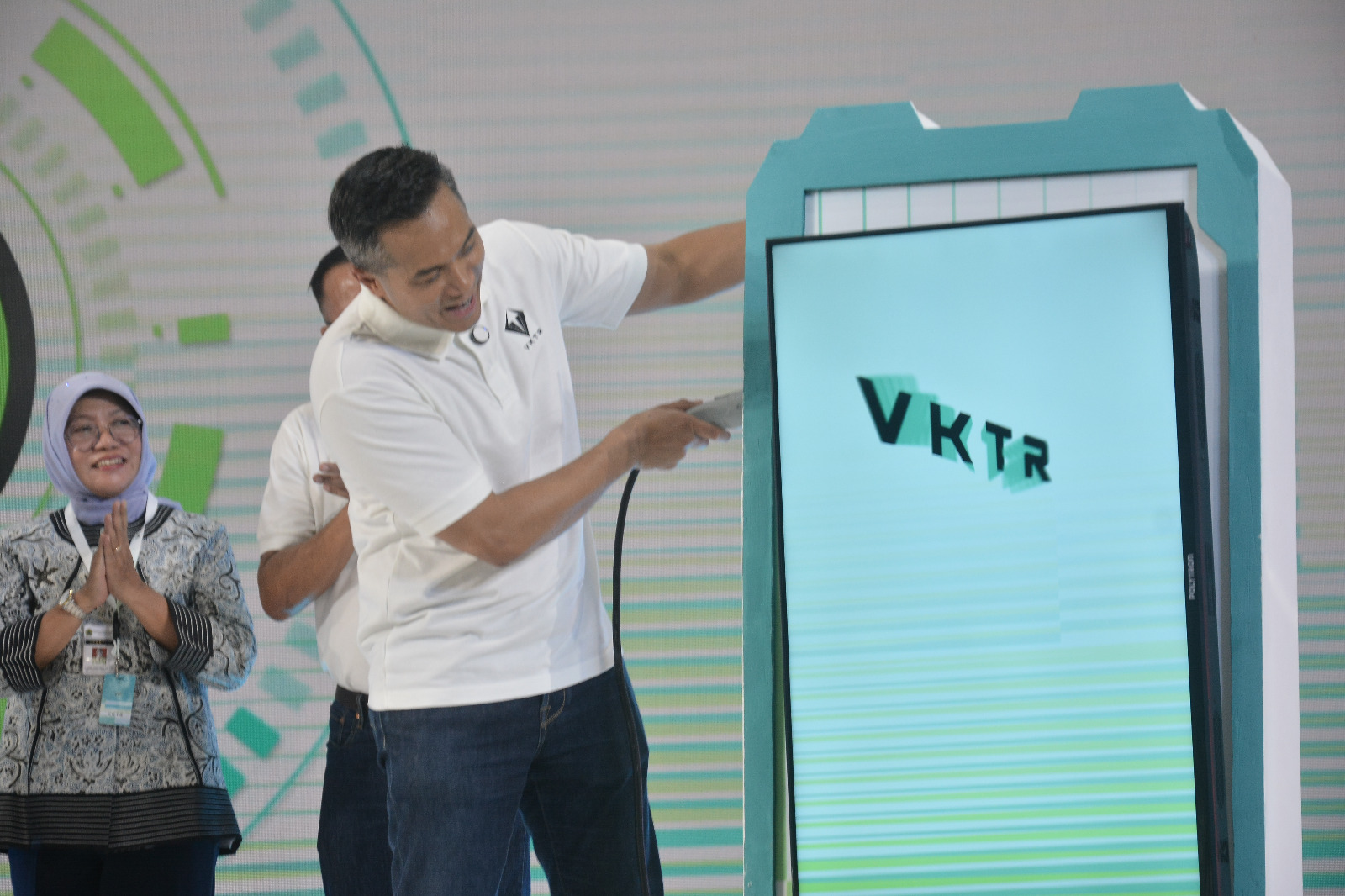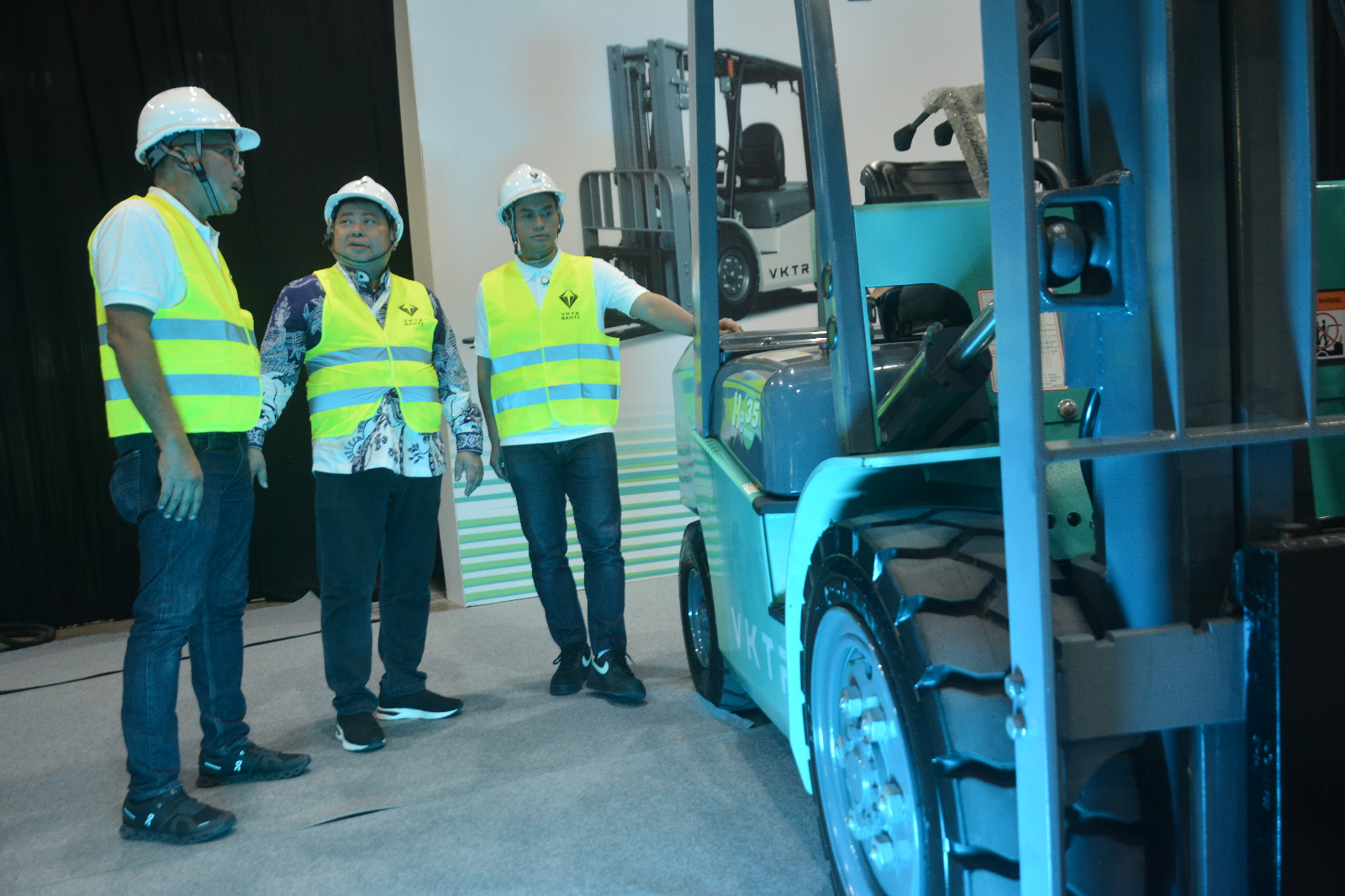VKTR Unveils Indonesia’s First CKD-Based Commercial EV Assembly Plant in Strategic Stakeholder Launch
Key Takeaways
|
MAGELANG, Investortrust.id — PT VKTR Teknologi Mobilitas Tbk, or VKTR, has inaugurated Indonesia’s first commercial electric vehicle (EV) assembly facility built on a completely knocked down (CKD) system, marking a significant step forward in the nation’s push toward sustainable transport and industrial self-reliance.
The facility, located in Magelang, Central Java, is operated by PT VKTR Sakti Industries, a subsidiary of VKTR. The soft launching event welcomed government officials, strategic partners, and industry players for a closer look at VKTR’s local manufacturing capabilities and readiness to support the growth of the national EV ecosystem.
Anindya Bakrie, President Commissioner of VKTR, opened the ceremony alongside Ahmad Yani, Secretary of the Directorate General of Land Transportation at the Ministry of Transportation, and other senior stakeholders. In his remarks, Anindya positioned the facility as a symbol of VKTR’s long-term commitment to building globally competitive, technology-led, and sustainable mobility solutions.
“This is more than a factory—it is a hub for innovation and collaboration,” Anindya said. “With strong government backing, partnerships, and local talent, Indonesia has a strategic window to lead Southeast Asia’s EV transition and carve out a meaningful role in the global market.”

A New Milestone in Domestic EV Manufacturing
Built in under a year following a groundbreaking in February 2024, the plant is the first in Indonesia specifically designed for the CKD assembly of electric buses and trucks. It supports a broader vision to establish a fully integrated national EV supply chain while reducing reliance on imports.
With a current annual capacity of 3,000 units, the facility is equipped to meet rising domestic demand. While full-scale production has yet to begin, attendees were given a guided tour of the production line, showcasing the factory’s readiness across key assembly stages—from chassis preparation and welding to final trimming and finishing.
Notably, the company has already produced EV units with a Domestic Component Level (Tingkat Komponen Dalam Negeri, or TKDN) of more than 40% in the bus segment. VKTR aims to gradually raise this level beyond 60% as part of its roadmap to strengthen local manufacturing and contribute to Indonesia’s EV industrialization goals.
“Delivering commercial EVs that are not only reliable and high-quality but also reflect Indonesian engineering excellence is our mission,” said Gilarsi W. Setijono, President Director of VKTR. “Surpassing the 40% TKDN mark proves that we can manufacture EVs to international standards while maintaining a strong local identity.”

Demand and Strategic Partnerships
VKTR’s EV buses have already been integrated into fleets operated by DAMRI, Transjakarta, Sinarjaya, and Mayasari Bakti—offering a glimpse of future adoption as demand for clean public transport accelerates.
The soft launch also served as the official debut for VKTR’s commercial EV product branding. Drawing inspiration from Indonesia’s natural and cultural heritage, the company introduced new model names: Tidar HF 12 and Arjuno HF 8 for buses, and Musi HDT 64 L for trucks. These names, VKTR said, reflect the strength, resilience, and energy flow that drive both the vehicles and the national ambition behind them.
Building the Backbone of Indonesia’s EV Ecosystem
As Indonesia pushes forward with its green energy transition, VKTR’s new plant represents both an industrial and symbolic cornerstone in national EV development. The facility is expected to accelerate the localization of EV manufacturing, reduce emissions in public transportation, and generate new employment opportunities.
Listed on the Indonesia Stock Exchange in June 2023, VKTR became the first publicly traded commercial EV manufacturer in the country. Since its IPO, the company has pursued a dual strategy of building domestic production capacity and forging alliances with global EV technology providers.
Looking ahead, VKTR plans to expand its product line, scale up production, and deepen its integration into the global EV supply chain—helping to position Indonesia not only as a major EV consumer market but also a key player in regional electrification efforts.

